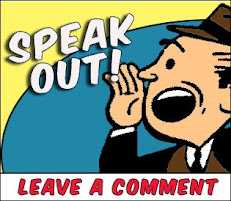Prof. Gates: A surprising, unlikely arrest suspect
7/24/09

 Gates in a photo in the Harvard Crimson, 2002
Gates in a photo in the Harvard Crimson, 2002
Skip Gates' arrest 7/21/09
Henry Louis ("Skip") Gates is not a man you'd expect to be in the middle of a confrontation with police, let alone the old-fashioned, unreconstructed "race war" which the wingnuts in the white blogosphere keep predicting.
Read his Wikipedia entry, which rightly describes Gates as a "public intellectual."
T he foremost scholar of African-American literature in the U.S., his career has been studded with achievements: he was the first African-American Mellon Fellow; he was the recipient of a MacArthur ("Genius") Award; he revived scholarly and public interest in long-lost slave narratives and began a movement to preserve and archive literary artifacts of African-American life; he's built African-American studies departments at major universities and guided the careers of the specialty's most prominent teachers and scholars.
he foremost scholar of African-American literature in the U.S., his career has been studded with achievements: he was the first African-American Mellon Fellow; he was the recipient of a MacArthur ("Genius") Award; he revived scholarly and public interest in long-lost slave narratives and began a movement to preserve and archive literary artifacts of African-American life; he's built African-American studies departments at major universities and guided the careers of the specialty's most prominent teachers and scholars.
His hallmark has been his subtle and sophisticated explications of race in America and, in particular, in academia:
"Gates has argued that a separatist, Afrocentric education perpetuates racist stereotypes and maintains that it is 'ridiculous' to think that only blacks should be scholars of African and African-American literature. He argues, 'It can't be real as a subject if you have to look like the subject to be an expert in the subject,'[1] adding, 'It's as ridiculous as if someone said I couldn't appreciate Shakespeare because I'm not Anglo-Saxon. I think it's vulgar and racist whether it comes out of a black mouth or a white mouth.'" ([4] (Wikipedia)Physically, Gates is a small man, dapper, witty, and likable. In public intellectual debate, he typically exemplifies the triumph of reasonable discussion and humor over dogmatism and piety.
You can see what he's like if you you watch the PBS miniseries he
 co-produced and hosted, African American Lives (2006) and African American Lives 2 (2008). (Gates learns through genealogical research and DNA testing that his ancestry is half white-European and also that he is descended from an Irish king called Niall of the Nine Hostages and from the Yoruba people of Nigeria.)
co-produced and hosted, African American Lives (2006) and African American Lives 2 (2008). (Gates learns through genealogical research and DNA testing that his ancestry is half white-European and also that he is descended from an Irish king called Niall of the Nine Hostages and from the Yoruba people of Nigeria.)In a graduate seminar I sat in on when he taught at Cornell, there were among us two students named Phil, one white, one African-American. On the first day, he turns to one of them and says, "I bet in all your classes you're always though of as 'Black Phil.' Well in here," he turns toward the other Phil with a smile, "you're going to be thought of as 'White Phil' and he's going to be just 'Phil.'" It was subtle, it was funny and everybody loved it, in particular White Phil for whom, I imagine, this acknowledgement of racial dynamics was a relief.
I'm sure that there are times when Skip Gates can be as nasty, grumpy, petulant and selfish as the next academic superstar. Especially when he's jet-lagged and locked out of his house. And one of his neighbors calls the police because she thinks he's breaking into his own house (good community watchdogging, but it's too bad she doesn't recognize her neighbors on sight.)
For the vast majority of us who only read about the incident -- i.e. everyone who wasn't there -- it's absurd to cast this single incident as a barometer of racial tensions in this country.
The online response to the incident from bloggers and anonymous posters on major newspapers' sites has been revealing, the NYTimes reports:
Many of the commentators identify themselves by race. Their remarks — raw, heartfelt, confused, and some perhaps offensive — are a remarkable snapshot of how people are viewing the same event through a racial lens.One online response I find particularly baffling is white people recounting of their own stories of police hostility and harassment as proof that the incident had nothing to do with race. Since they were falsely arrested and are white, they argue, false arrest is a universal American experience (um, scary, very scary) with no racial implications. Thus, they claim, by bringing race into the issue, Gates, and in turn President Obama, "played the race card," by which they mean that they spuriously brought race into an issue with divisive and demogogic intent.
"I believe Gates was disorderly and he is making this a racist issue. I find blacks far more racist than whites and will never miss a chance to play the race card." — "Pip", Reader Comments, The Boston Globe July 21, 2009, reported in WikiNewsAs a white person, I find these white people incredibly scary. They're akin to Holocaust deniers -- how, in the face of so much empirical documentation and moving personal testimony, can they claim that race isn't a genuinely ever-present issue in the lives of African-Americans?
"I hate the race card just as much as anyone else..."-- "bill," a Boston Globe reader who went on to say that he did think Gates was the victim of racial profiling. July 21, 2009, reported in WikiNews
They're like the people in that old diversity-training joke who say that we (our company, our country, our country club, etc.) had no problems with discrimination until they (Jews, people of color, queers, etc.) showed up. Or, as a commenter to The Washington Post named ravitchn wrote:
“O’Bama [sic] he has gone too far in being black; we whites will never trust him again.”The underlying assumptions about race in that statement are just f*cked on so many levels.
What's really shocking is the endless supply of incredibly racist comments posted anonymously -- and preserved for posterity -- on the websites of every major newspaper in the country. (The Plain Dealer's are atrocious.)
Why are some white people so afraid talking about race out loud, preferring to type out furtive insults at the tail end of any article about an African-American?
And why do we (other white people, people of color, journalists, newspaper advertisers, any other interested party) let them get away with it? But's that's a post for another day.
Meanwhile, it's ironic that Gates, a man whose professional achievements include conquering a prevailing academic shibboleth of racial determinism and preserving the multiplicity of African-American idea against reductivism, should be at the starting point of all of this.

Technorati tags:





0 comments:
Post a Comment